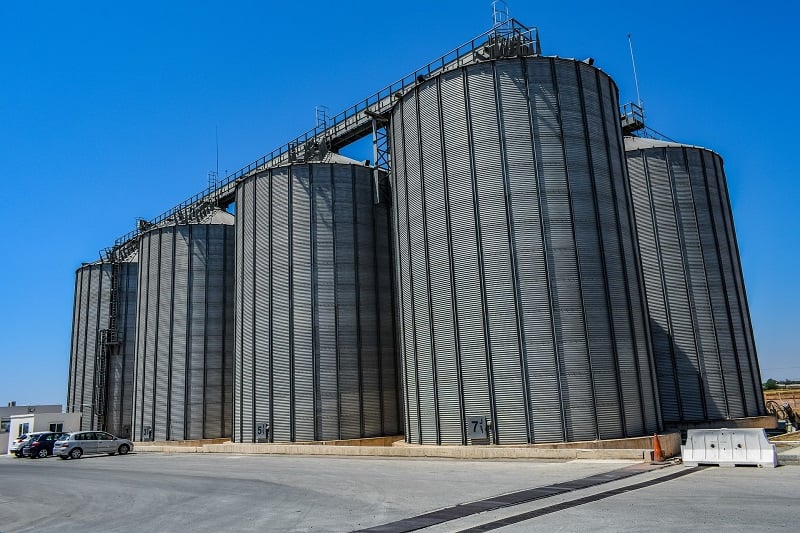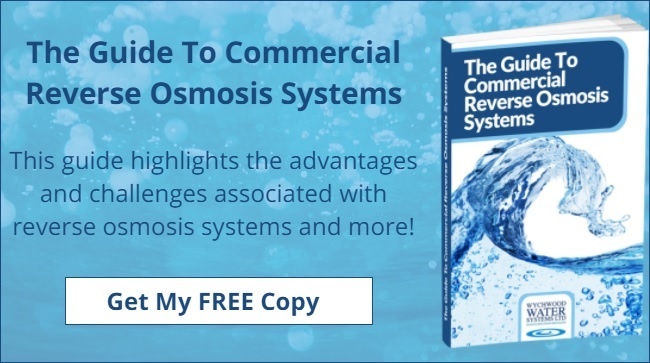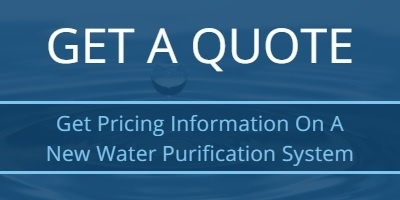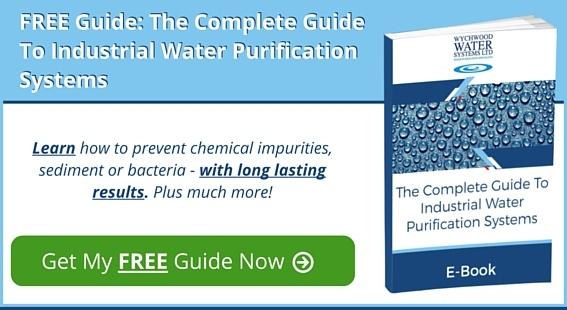
Did you know that industrial wastewater can be recycled back into feed water or mains water in the vast majority of cases? Any water used for cooling, light cleaning, or washing is ideal for re-filtration into purified water. Making sure that you get the most out of your process water can help to cut your bills and beat water scarcity. It helps the environment, too. Even if your wastewater is contaminated by pollutants, it can still be salvaged with the right equipment.
So, how is this done? Here are three of the most popular methods that modern industries use.

1) Combined Reverse Osmosis Filtration
Reverse Osmosis (RO) is the most common process used in water recycling. Reverse osmosis units use membrane filters to clean feed water of any particles and impurities. A reverse osmosis cylinder will typically achieve a c.75-85% purification rate. This can be raised further with post-processing and 'polish'.
Most RO units are capable of maintaining a continuous processing flow. RO will often be combined with many other processes (such as chlorination and ultrafiltration to remove microorganisms) to produce high-quality, sterile water. As an added advantage, it can usually double as a freshwater and saltwater processor.
If you're relying on feed water that sees light or passive usage before draining, a reverse osmosis unit is a cheap way to re-purify and quickly reuse your liquid. It's commonly used in industries that rely on boiler feed water. Turbines and steam pipes rely on a steady supply of purified water that sees little contact with heavy contaminants.
It's popular in metal finishing workshops, as well. Recycled RO water is a great way to produce a cost-effective, spot-free rinse, free of chemical blemishes.
2) Wastewater Redirection
One clever and cost-effective way to get the most out of clean, disinfected, but used wastewater is to redirect it into other systems that don't require such stringent criteria for water use. Fire sprinklers are often fed by treated wastewater, as are irrigation and garden sprinklers and toilets. The wastewater pipe is simply plumbed into a tank or reservoir that feeds the secondary system rather than an outlet. Redirection is focused on the quick, cheap reuse of wastewater. It isn't at all recommended for effluent water or that polluted by sewage. Bear in mind that there are often tight regulations attached to what sort of water is used for growing crops or supplying livestock.
3) Membrane Bioreactors
Bioreactors are a slower and more convoluted way to recycle used water, but a highly effective one. Membrane Bioreactors combine a traditional inorganic material filtration process with a prolonged period of anaerobic (sealed, without oxygen) or aerobic (open, oxygenated) digestion. Bacteria and a carbohydrate feed are released into a closed tank to let the bacteria eat and break down the biodegradable organic material in the sludge.
This eventually produces a mass of effluent water and biogas. The effluent can then be re-filtered via carbon filtration and reused or pumped back into an aquifer for natural cleansing. The biogas can be repurposed to produce fuel or electrical energy.
Bioreactors are commonly used in paper mills, sewage plants, agriculture, and the food and drink industry to clean heavily polluted water that has been mixed with a complex range of organic substances. It's much more expensive than reverse osmosis, though. Output water has to be fully re-filtered and disinfected before it can be used in industrial or domestic systems again. It's also worth noting that Bioreactors can't cope with artificial materials such as micro-plastic shards - that's what the initial filtration process is there to catch.
Speak To Us
For the best water treatment method for your industry, and handy tips on how to maximise the volume of water you can recycle, please call 01993 892211 today.
Image source: Pixabay









 We are a specialist independent company involved in water purification and water treatment technologies
We are a specialist independent company involved in water purification and water treatment technologies


